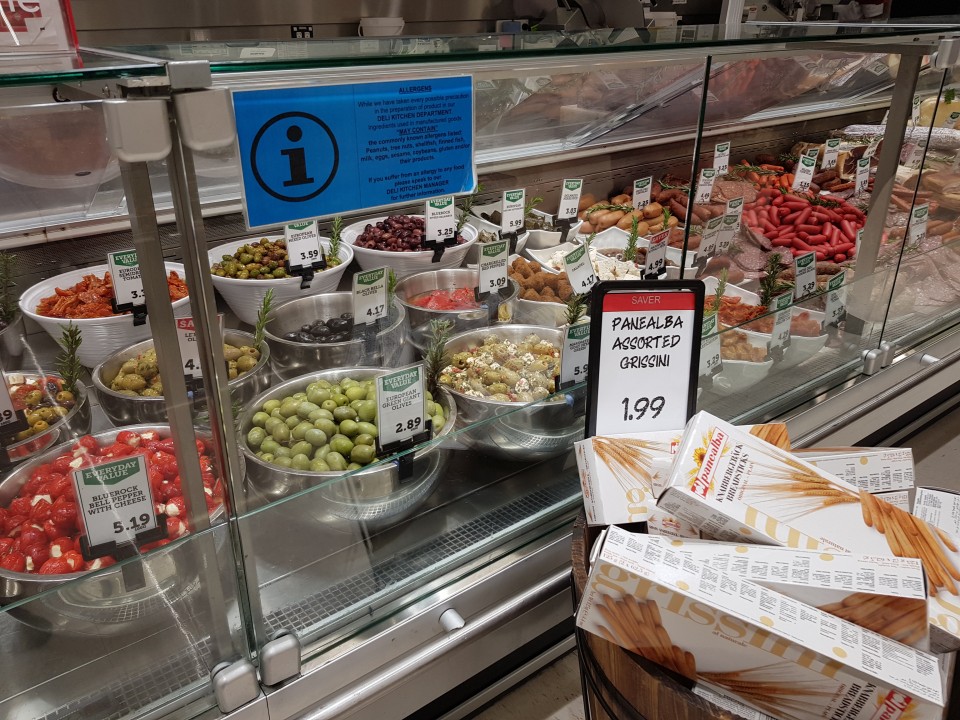
The focus of supermarkets over the past 20 years has been the ‘fresh’ piece.
One of the most popular segments, protein such as meat, fish and chicken, have been a huge grab for the major supermarket chains at the detriment of other businesses. They have successfully changed our shopping habits to lure us away from specialty stores like chicken shops, butchers, greengrocers and fishmongers.
The reduction in the number of independent fruit and vegetable stores has made way for growth in fresh fruit and vegetables, and the majors are responding to more convenience and pre-prepared options – people are happy to pay for a fresh product that once upon a time they’d prep themselves.
The product range offered by Australia’s industry giants has evolved during the last five years, with the expansion of private food label goods, pre-prepared food and healthy options.
There has also been an increased focus on convenience as customers demand ready-to-eat meals and snacks on the go.
The Deli section – particularly cheeses, meats and antipasto – used to be a growing focus but it seems to have run out of steam lately.
In particular, the demise of the “antipasto” section in most supermarkets that is fast disappearing, which could be for a number of reasons, including:
Labour cost in store
It’s simply not viable to have a person serve a product for a transaction value for under $3. Prices per kilogram must rise in accordance with people’s dwindling purchase quantity.
Shrinkage and food safety concerns
Due to the same rules being applied for all products, there is an expectation that product is thrown out at the end of the day – meaning a huge loss on serve-over product such as sun-dried tomato or roasted capsicums.
Growth in pre-packs
One supermarket, in particular, offers products once sold in the deli, now in pre-packs (e.g. grilled eggplant, capsicum and feta filled olives). This negates the need to purchase over the counter at the deli, and instead, you can grab and go directly from the chiller.
Reduction in demand
People’s tastes are diversifying and they are looking for healthier options, smaller portions and changing eating habits.
Vendor pays
Prepackaged antipasto is sold on special multi-buys and this can be funded by suppliers in terms of markdowns and promotions.
Competition for space
The chilled meals section has potentially higher returns than an antipasto section. We all understand that people want a meal solution and even assembling a cheese, cold meats and antipasto platter might seem like hard work for some. Therefore replacing it with a higher profit-generating product increases revenue for the supermarket.
The competition for consumers’ dollars has never been tighter, and to ensure customers are returning to the major chains, many are implementing micro-outlets within each supermarket. This is evident through the introduction of Sushi bars in several key supermarkets. These in-store speciality vendors effectively compete for the real estate once allocated to the Deli section, with the supermarkets sub-leasing these areas for a better return per square metre.
Overall, the retail market is rapidly evolving and the main objectives of the large players is to reduce costs through automation and reducing shrinkage and theft.
Labour cost will continue to bite into the cost basis and the main issue that retailers have cited is attracting and retaining talent in the coming 5 to 10 year period.
Sandhurst Fine Foods has plenty of ideas from our visits to retailers in the UK and USA into how to revitalise the Deli section and look at more exciting and engaging ways in which to attract consumers.
It’s time to rejuvenate and revitalise and bring a new spirit to the supermarket Deli.
